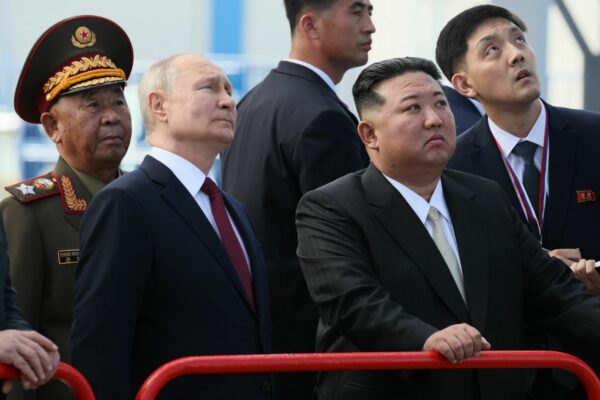North Korea’s Kim Jong Un arrives in Beijing for military parade
North Korean leader Kim Jong Un arrived in Beijing on Tuesday, ahead of a massive Chinese military parade on Wednesday that will celebrate 80 years since the Japanese defeat that ended World War II. Kim and his daughter Kim Ju Ae arrived at around 4 p.m. on a green train bedecked with North Korean flags. They were met at the Beijing train station by Cai Qui, China’s fifth-highest ranked official, and foreign minister Wang Yi. It’s the North Korean leader’s second reported trip abroad in six years, and his first trip to China since 2019. The event at Tiananmen Square is expected to include troops marching in formation, aircraft flyovers, displays of military equipment and some 50,000 spectators. But many eyes will be on the VIP audience, where Kim is expected to rub shoulders with Chinese President Xi Jinping and Russian leader Vladimir Putin, among others. While Kim has engaged bilaterally with Xi and Putin in recent months, this will be their first gathering together. Analysts say they’ll be looking for signs of strengthening ties among the three countries. Earlier on Tuesday, Xi met with Putin at the Great Hall of the People and then again at his residence. That followed a summit on Monday in which Xi and Putin met with leaders from more than 20 non-Western countries. Among them was Narendra Modi, the prime minister of India, who talked with both Xi and Putin. Includes reporting from Agence France-Presse and Reuters. We are : Investigative Journalism Reportika Investigative Reports Daily Reports Interviews Surveys Reportika







